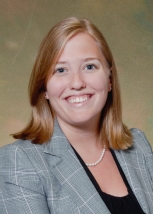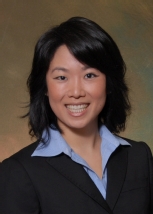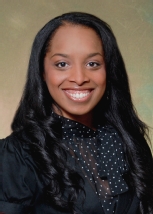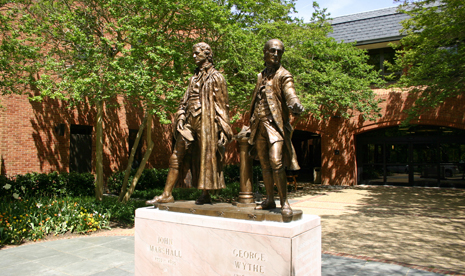Law School's Post-Graduate Public Service Fellowships Help Graduates Navigate Job Market
One-Year Fellowships Provide "Bridge to Practice" That Helps Recent Graduates Land Jobs, Hone Skills, and Build Professional Networks
Thanks to the generous support of the Law School's alumni, faculty, and friends, the Post-Graduate Public Service Fellowship Program is giving recent graduates the opportunity to assist government agencies or public interest organizations while helping these young alumni hone their skills and knowledge as they seek permanent employment. A significant number of fellowship recipients have landed permanent jobs through the program, which is among the initiatives of the William B. Spong, Jr., Citizen-Lawyer Center. The center is funded through gifts made by members of the Law School Classes of 1978 and 1983, faculty, and other generous donors.
Beginning in fall 2012, the Law School expanded its program from three-month-long fellowships to fellowships that may last up to one year following graduation. Fellows receive a stipend for their services and Office of Career Services (OCS) advisors offer guidance and encouragement to recipients throughout their fellowship term as they continue their search for permanent employment.
"Once these offices see the talent, skills, and work ethic of William & Mary graduates, fellowship employers want to hire our graduates when permanent positions become available," said OCS Senior Assistant Dean Ramona Sein. "In some cases, employers have even secured new funding to bring fellows on permanently once the graduates prove indispensable as fellows."
Bonnie N. Brown J.D. '12: Fellowship Leads to Job as Assistant City Attorney in Hampton (Va.) City Attorney's Office
 Brown '12, a graduate of Christopher Newport University (CNU) with a bachelor of arts in government, and minors in both leadership and American studies, was part of CNU's President's Leadership Program and Honors Program as well as a junior fellow for the Center for American Studies.
Brown '12, a graduate of Christopher Newport University (CNU) with a bachelor of arts in government, and minors in both leadership and American studies, was part of CNU's President's Leadership Program and Honors Program as well as a junior fellow for the Center for American Studies.
As a graduate research fellow at the Law School, Brown was a teaching assistant for the Legal Skills Program during her 3L year. She served on the Executive Board of the Alternative Dispute Resolution Team as competition coordinator, as well as a competitor, and was a Student Legal Services volunteer. Brown was an intern in summer 2010 at the Norfolk City Attorney's Office and, in summer 2011, she interned at Greehan, Taves, Pandak & Stoner, PLLC, a law firm in northern Virginia, representing localities primarily in litigation and land-use issues.
To build on the land-use and litigation experience she developed in her internships, and position herself for permanent jobs in these areas, Brown secured a Post-Graduate Public Service Fellowship in the Hampton City Attorney's Office. From September 2012 to January 2013, she practiced local government law representing the city's interest in a variety of matters.
"Local government attorneys craft and administer local law, advise public officials, and represent a locality's interests in court," she said. "It is fast-paced, varied, and meaningful work. For example, the attorneys in Hampton assist the city with everything from procurement to public safety and public works."
Brown's work was focused primarily in the areas of zoning and planning, real estate, and economic development.
"That means I can literally drive around the city and see the effect of my work," she said. "I also get to collaborate with planners, zoning officials, engineers, and surveyors. I advise city staff, perform legal research, draft ordinance amendments, resolutions, and other legal documents, review land-use applications, and assist with meetings of Hampton public bodies."
On Feb. 4, 2013, Brown began her full-time position at the Hampton City Attorney's Office as assistant city attorney. She credits Dean Sein and the Office of Career Services for their help.
"I think you would be hard-pressed to find a more collegial law school than William & Mary," Brown said. "Looking back now, I appreciate the atmosphere I experienced there as much as I do the education. Without question, I enjoyed the practical side of law school most. The Law School's competition teams, skills-based classes, externship opportunities, and most recently, Post-Graduate Public Service Fellowship Program, provided me with the experiences and friends I most value."
Janet Jin Ah Lee J.D.'12: Fellowship Leads to Job with Circuit Court of Richmond, Va.
 Lee '12 graduated from Austin College in Sherman, Texas. While in law school, she was active on the National Trial Team, serving as a board member her 3L year, and Moot Court Team, serving on that team as a board member her 2L year. She won various awards at several team tournaments. Lee received the 2012 Virginia Trial Lawyers Award, one of two recipients at the graduation awards ceremony in May 2012.
Lee '12 graduated from Austin College in Sherman, Texas. While in law school, she was active on the National Trial Team, serving as a board member her 3L year, and Moot Court Team, serving on that team as a board member her 2L year. She won various awards at several team tournaments. Lee received the 2012 Virginia Trial Lawyers Award, one of two recipients at the graduation awards ceremony in May 2012.
Lee served her Post-Graduate Public Service Fellowship at the Commonwealth's Attorney's Office in Richmond beginning in September 2012. After handling a co-defendant burglary/assault with a deadly weapon case that involved a dozen witnesses, and then learning she passed the bar, she was offered a full-time position November 5 as an anchor for the Circuit Court of Richmond where she manages specially assigned cases.
"As a graduate of William & Mary, I appreciate most the unique opportunity to have mentors and professors who truly took a personal interest," Lee said. "Professors Fred Lederer and Don Tortorice, Justice Leroy Millette of the Supreme Court of Virginia, [W&M '71, JD '74], Mrs. Elizabeth Millette, and Jane Sherman Chambers J.D. '92, staff attorney for the Commonwealth's Attorneys' Service Council, are just a few of the mentors who went above and beyond for me. They were generous with their time and support.
"The mentors at William & Mary challenge and encourage students to think beyond the walls of the Law School," Lee said, "and to anticipate, and create opportunities in every situation."
Christa Barber Moss '12: Fellowship Leads to Job as Assistant City Attorney in Kansas City, Mo.
 Moss '12, graduated from Oral Roberts University (ORU) in Tulsa, Okla. with a bachelor of arts degree in government, and a concentration in pre-law. At ORU she received Senior Paper Defense honors and was a member of the National Scholars Honor Society. Moss participated in national and international music tours through ORU's Worship Program, and competed in a mock legislative competition, the Oklahoma Intercollegiate Legislature, where she was given Best Senate Delegate and Best Legislation awards.
Moss '12, graduated from Oral Roberts University (ORU) in Tulsa, Okla. with a bachelor of arts degree in government, and a concentration in pre-law. At ORU she received Senior Paper Defense honors and was a member of the National Scholars Honor Society. Moss participated in national and international music tours through ORU's Worship Program, and competed in a mock legislative competition, the Oklahoma Intercollegiate Legislature, where she was given Best Senate Delegate and Best Legislation awards.
During law school, Moss was active in the Institute of Bill of Rights Law: Student Division, the George Wythe Society Mock Legislature, and the Dean's Associate Program, as well as part of softball, soccer, volleyball and flag football co-ed intramural teams. She wrote for the William & Mary Journal of Women and the Law, received honors in Legal Skills I, II and IV, and was awarded the Gambrell Legal Skills Award.
Moss's interest in public service law is steadfast, and she hopes to serve one day in a legislature. To pursue that goal, she competed in the mock intercollegiate legislature, served as an extern for the firm of Heikes & Bolling, PC, in Williamsburg, and the Newport News City Attorney's Office; and was a summer associate for Patterson Buchanan Fobes Leitch & Kalzer in Seattle, Wash. Political ambitions were one reason Moss decided to pursue a legal degree.
Moss said, "I realized how helpful it was to understand the ins and outs of the law if you wanted to be involved in creating and shaping the law."
She also hopes to work in immigration law, particularly visa and naturalization. Moss was a research assistant for Professor Angela Banks at the Law School from summer 2010 to May 2011. Moss's mother, who emigrated from India in her late twenties, faced struggles with attorneys who took advantage of her lack of legal knowledge. Her mother's experience was another factor, Moss said, in her decision to pursue a career in law.
Moss's life took an unexpected turn before graduation during the spring of her 3L year when her husband was promoted to a position in Kansas City. During finals, she met with Assistant Dean Rebecca Knowles, who helped her research some potential offices that would be eligible locations for a Post-Graduate Public Service Fellowship. She quickly met with Professors Angela Banks and Susan Grover. Grover put her in contact with a friend who worked at City Hall in Kansas City, and was the Lexis-Nexis administrator for the legal department, as well as with the city attorney and the attorney who oversees internships at the City Attorney's Office.
"The City Attorney's office asked me to interview for an 'internship' although they had never had a recent J.D. who could potentially be a licensed attorney as an intern in the office," Moss said. "They interviewed me after I arrived in Missouri after graduation, and waited a few days to make a decision. The Office of Career Service's flexibility in helping me secure this fellowship, despite my changed circumstances, was most appreciated."
Moss used her fellowship to work in the Office of the City Attorney, which put her in the thick of public service law.
A month into her work there, Moss began helping with a project that the office had fallen behind on due to lack of staff. The managing attorney informed her that there might be an open legal position the following year. Moss told her manager that the fellowship required her to apply for jobs, and that she would have to give notice if permanent employment became available elsewhere. One week later they asked her to submit an application for the position, and it quickly went through the three levels of the application process within a week -- a process that usually took several months.
"Despite my lack of experience," Moss said, "I received the job offer two days after my interview."
"The faculty support was particularly helpful," she added. "While I enjoyed the open door policy and the welcoming nature of W&M law professors, the genuine way they care for the well-being and future of students was a part of making the networking contacts I needed to secure this opportunity. My advisors at William & Mary have been invaluable contacts, mentors, and references. I especially acknowledge Michael Heikes, who was my Legal Skills professor, who allowed me to extern in his practice. That work, plus our Legal Skills courses, gave him first-hand insight into my legal reading, writing and research skills, which then enabled him to provide a genuine recommendation of my work and potential."
"For now, as assistant city attorney," Moss said, "I am doing property law, and am enjoying how versatile and interesting this area of law is. I also advise political and municipal entities within the city regarding city and state laws, rules and regulations. This includes interpreting ordinances and recommending legal implications of city legislation. The experience I am gaining in this office seems to be ideal preparation for my future aspirations to hold public office. I attribute this to the Post-Graduate Public Service Fellowship opportunity made possible by the Law School."
Editor's Note: You can help support the career development of the Class of 2013 by making a gift in support of the Post-Graduate Public Service Fellowship Program. Please visit our secure site to make your gift now.
